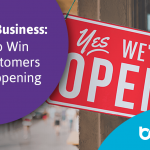By Justin Pasqualino – Lawpath
As an SME operator, you need to protect your confidential information in business relationships. This is where NDAs come in to play. Whether it’s one way or mutual, there’s plenty to know about NDAs.
Confidential information might be a game changing idea or include your intellectual property. It could be something sensitive such as customer data. You need to protect your information but the question is how? The quickest and easiest form is an NDA which can either be mutual or one-way. Understanding which one is right for you means understanding the nuances of each.
What is a Non-Disclosure Agreement (NDA)?
NDAs and confidentiality agreements are effectively the same thing. An NDA is a type of contract and is a legally binding agreement between two parties. When a business carries out its operations there are various stakeholders such as employees, third parties, suppliers and investors who may get access to your confidential information. It could be financial information, product releases or future plans for your business. There could be serious repercussions for your business if this information gets out. For example, your competitors may see that you’re expanding your business into a neighbouring country and decide to do exactly that.
Depending on your situation, you’ll need an NDA for any party who becomes privy to important information.
Mutual NDAs
The power of a mutual NDA usually lies with both parties. Mutual NDAs usually consist of one party giving over confidential information then in exchange, the other party also provides confidential information. In contract law the basic building block of consideration is satisfied. That is, something is being exchanged for something else. This means both parties are giving the other confidential information and have access to the other’s confidential information. Furthermore, whenever there is an issue of confidential information, an NDA should be signed before the information is handed over.
Example
Say your SME wants to hire an independent contractor. To facilitate this your business has to provide the contractor with your IP assets as well as customer information. In return, the contractor will provide your company with the trade secrets about their data processes and trade secrets. Neither you nor your contractor want this information to get out so as a result, you sign an NDA with them.
One Way NDA
One Way NDAs are only used when only one party shares confidential information. The point of using the NDA is so you can legally sue in the event there’s a breach of confidentiality. If you share information with either an unenforceable NDA or no NDA at all, you’re exposing your business to significant risk. It’s just one of many steps to protect your information.
Example
Consider the scenario of seeking investors for your business. In order to attract investors, you’re going to have to reveal some confidential information to them about what makes your business tick and why they should give you money. For this to occur you’ll need to sign an NDA with the investor in order to share trade secrets with them. This is an example of a one way NDA as the investor has no confidential information to share.
Remember…
Selecting the right NDA for your situation should be on a case by case basis. If you’re trying to gain investors and you slip up with handing over confidential information, you could turn them away. However, if you are working with third parties and other companies you may want a mutual NDA. Whichever you choose, ensure your NDA is enforceable and legal.
Find your perfect lawyer now.
Get a fixed-fee quote from Australia’s largest lawyer marketplace by visiting the Lawpath website or call their friendly team on 1800 529 728.


